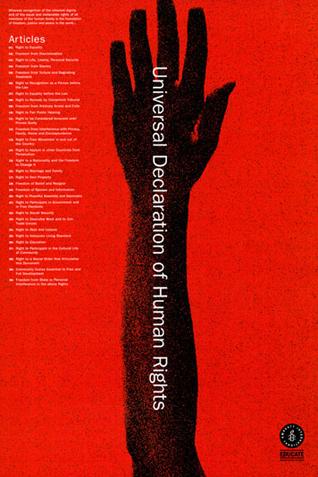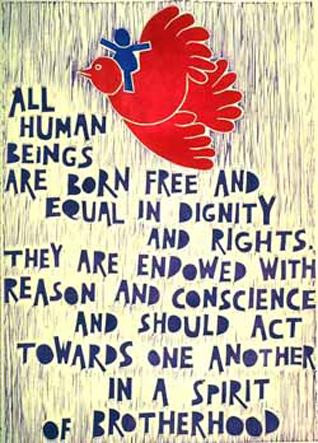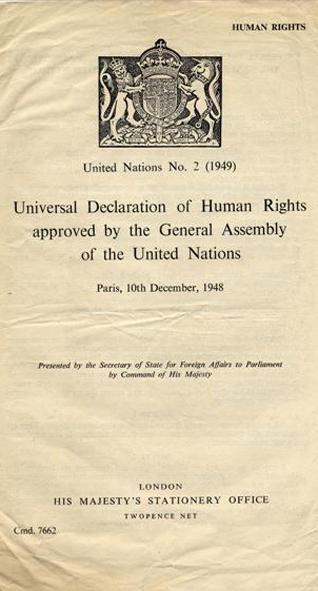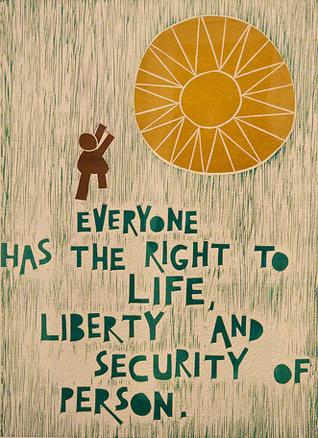Columnists
Sikhi and The Universal Declaration of Human Rights
by I.J. SINGH
December 10 marks the anniversary of the enactment of the Declaration in 1948.
Many years ago, as a young student arriving in New York in 1960, when I first read the ideas in the Universal Declaration of Human Rights, I thought that perhaps it was a restatement of the message of Sikhism.
Today more than 60 years later, we remember the Universal Declaration as the Magna Carta for all humanity. It has a long and checkered pedigree. It echoes the Bill of Rights of the United States and an American, Eleanor Roosevelt was one of the forces behind it. International Law treats it as a guideline; but within the laws of any land, it is not a binding treaty; only a declaration.
When Sikhism arose on the Indian subcontinent over 500 years ago, and for its entire history, we Sikhs have been preoccupied with what exactly human dignity is and how it is best nurtured and safeguarded.
My thoughts go to the fact that for many, many millennia, Indian society was defined by a rigidly defined caste system that denied the lower castes any freedom of thought, expression or association. And for many centuries, religious conflict dominated the Indian landscape.
Since Sikhism speaks emphatically against such inequities, awareness of fundamental issues of human rights have formed and defined us.
As a Sikh, to me human rights stem from the founder of the faith, Guru Nanak. He spoke of "One Light" from which emerges all creation. This God is found within each of us, and he defined God as love - free from gender, caste, color, race and nationality.
The love of God, said Nanak, was not limited to only a particular people, be they Christians, Muslims, Hindus, Jews, Buddhists, etc. None was excluded - not even the agnostic or the atheist.
His message spoke of the three pillars of the faith: to earn one's bread honestly, to share the rewards of life with fellow humans, and to do both with an awareness of the Infinite within each of us.
The Articles of the Declaration of Human Rights start with a recognition of human freedom and dignity, and the right to life, liberty and security. Then the Declaration goes on to reject slavery, degradation, inequality before the law, and fear of arbitrary arrest, detention or exile.
As a Sikh, I cannot fail to acknowledge that human dignity, liberty, self-empowerment, and justice where transparency and accountability prevail, were the teachings of Guru Nanak and his successor Gurus.
Sikhism repeatedly speaks of a just and egalitarian society, where all men and women enjoy the rights of a free people, and could pursue their lives without coercion and fear.
Sikhism asks us to pursue the goal of a free and just society where "no one is a stranger and no one an enemy."
I see absolutely no chink, no daylight, between the provisions of the Universal Declaration of Human Rights and how Sikhism teaches me to mould my life.
ijs1@nyu.edu
December 10, 2009
Conversation about this article
1: Gurdip Rehal (Davis, California, U.S.A.), December 11, 2009, 9:47 AM.
We should consider the ways in which the current human rights discourse writ large is a construct of certain European ideals that do not fit the paradigms of life worldwide. This is why activists all over the world (including Europe and the U.S.) have called attention to the ways in which the declaration is anything but universal. Aihwa Ong does this most succinctly in her chapter on Neoslaves and NGOs in Singapore, in her book 'Neoliberalism as Exception.' We are too satisfied to say that the Gurus gave us a kind of prophetic human rights declaration 500 years ago. That's fine and that's admirable, but there's no need to compare it to a document that is anything but universal.
2: Darshan Singh Abbott (Mumbai, India), December 11, 2009, 9:51 AM.
With the birth of Guru Nanak, Sikhi proclaimed human rights as the birth right of every human being, irrespective of caste, colour and creed. Throughout His life-span, Guru Nanak - through gurbani and His four Udaasis (journeys), proclaimed equality of all and gave the message that Man is known by only by his acts and deeds throughout his life on this mother earth. He said that all human beings are children of One Light and therefore nobody is low or high by caste or creed, or any other differentiation.
3: I.J Singh (New York, U.S.A.), December 11, 2009, 11:21 AM.
In response to Gurdip Rehal, I need to state that this very brief piece was written at the behest of a Washington-based Interfaith organization. They had asked for a 500-word or less statement from each religion for inclusion in a booklet for wide distribution. It is not meant to be an exhaustive paper on the Sikh position, nor is it meant to be a detailed comparison with the position of others. The requirements so specified clearly. Therefore, comments on the perceived shortcomings of the Universal Declaration would also have been inappropriate. An exhaustive analysis as you suggest might indeed be useful.
4: Gurjender Singh (Maryland, U.S.A.), December 11, 2009, 11:53 AM.
This article is in the right direction. But these articles stay only inside the walls of the gurdwara and Sikh households. Non-Sikhs are not even aware of Sikhs. Again, media involvement by Sikhs should be the number one aim to spread the message of Sikhi.
5: Sitnam (United Kingdom), December 28, 2009, 3:10 AM.
Subcontinental culture varies like its vast geography. People speak in different languages, dress differently, follow different religions, eat different food, etc. But whether it is a joyous occasion or a moment of grief, people participate whole-heartedly, sharing the happiness or grief.






